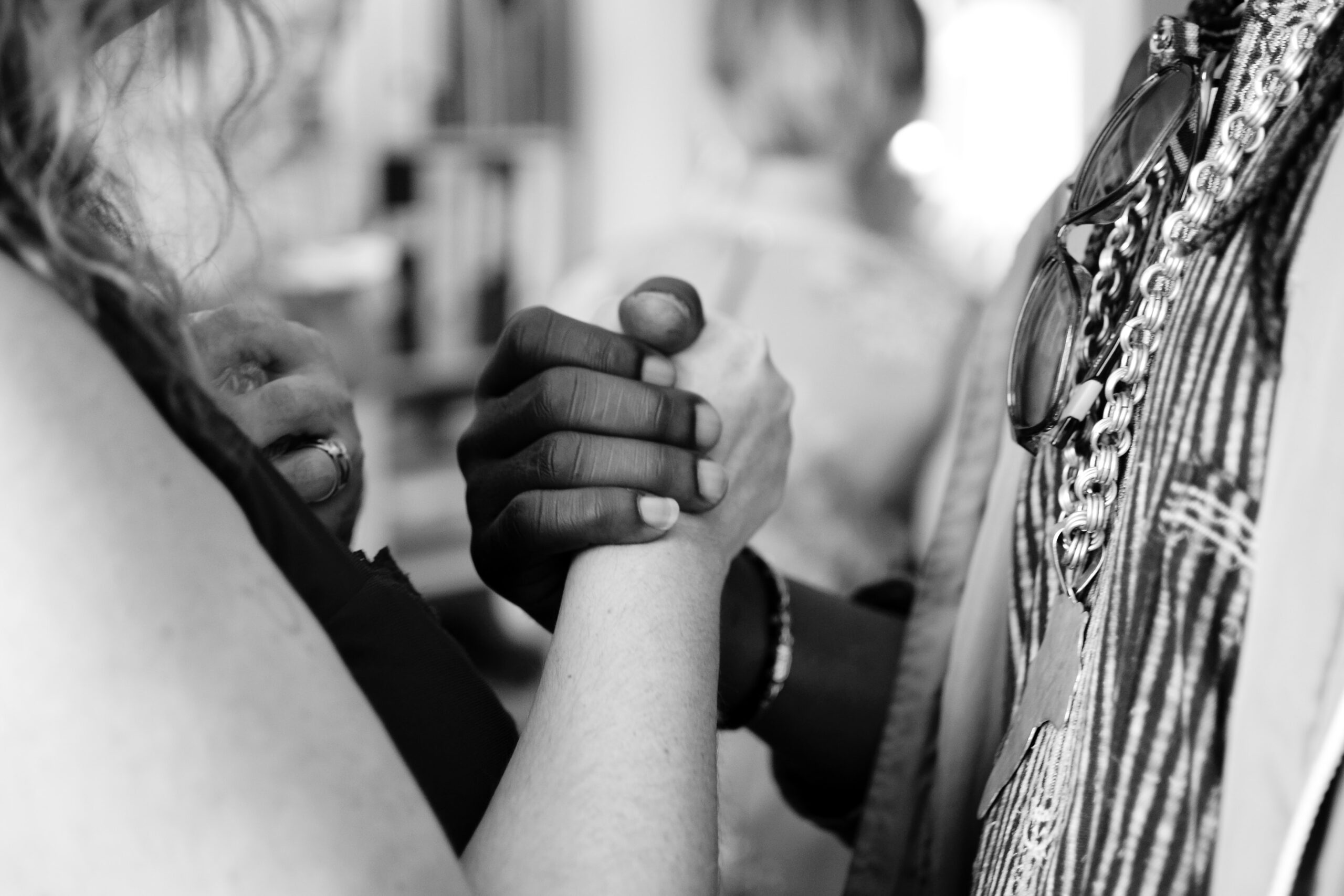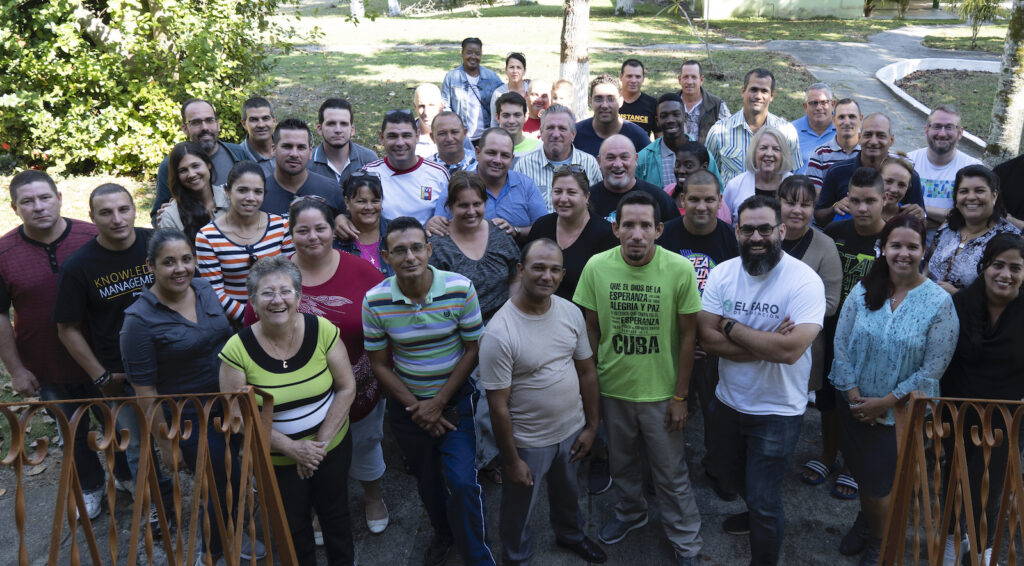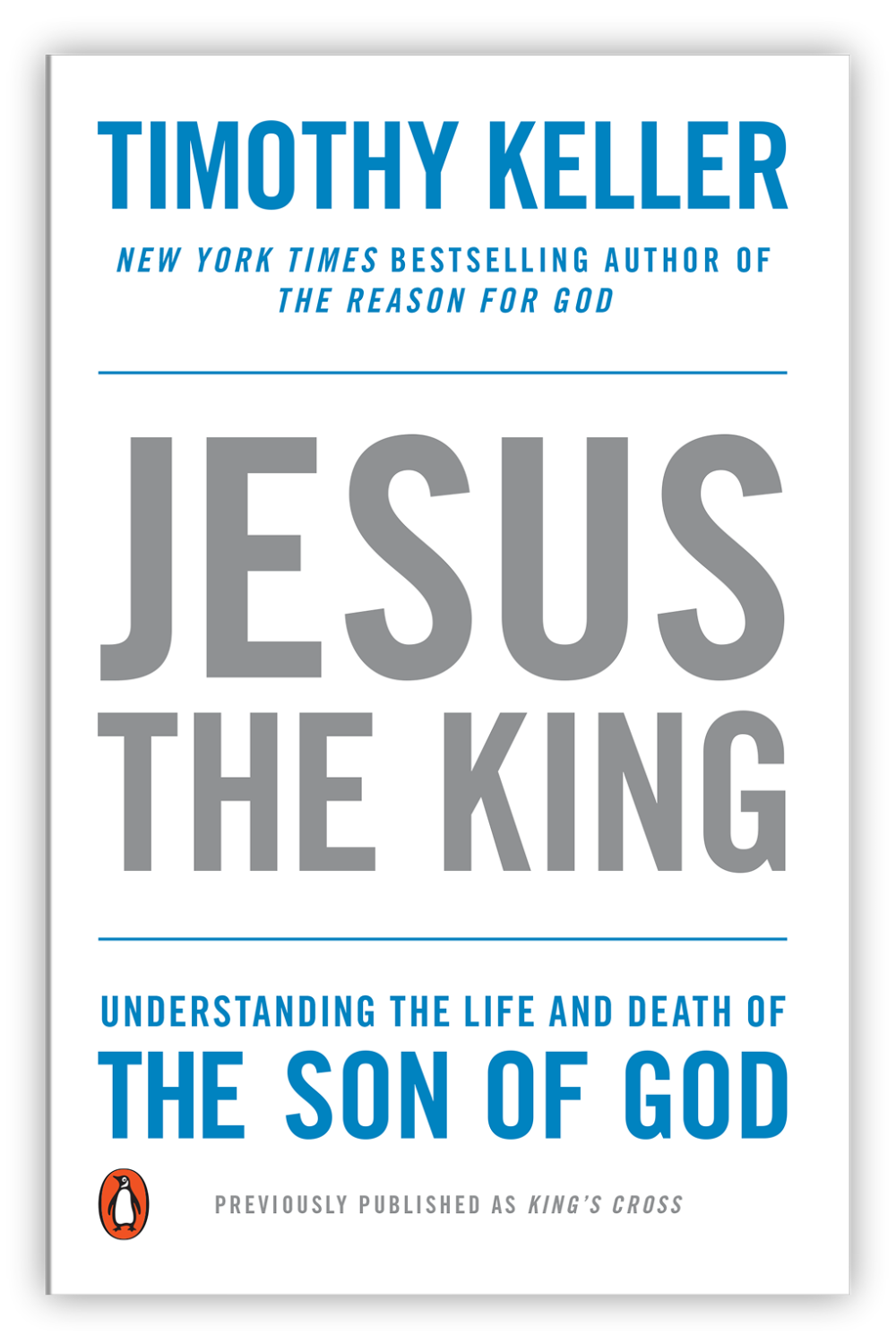This is the second article in the series on justice and race by Timothy Keller that includes: “The Bible and Race” (March 2020), “A Biblical Critique of Secular Justice and Critical Theory” (August 2020), and “Justice in the Bible“ (September 2020).
1. Because of the image of God. It is a sin to violate–in thought, word, or deed–the divine truth that all humans have equal dignity and worth as persons created in the image of God (Genesis 1:26-28). One of the many ways that truth can be violated is given in James 3:9, where we are told that to even curse a human being—to address them without respect—violates the image of God. When Jesus explains “You shall not murder” (Matthew 5:21), he says if you treat someone with contempt, calling him or her ‘Raca’ or ‘fool,’ you are violating the principle of the command and are “in danger of the fire of hell” (Matthew 5:22). To modern ears this seems excessive, but behind the sixth commandment is the doctrine of the image of God as expounded in James 3. It is a sin to treat any class or group unequally, as being less worthy of respect, love, and protection.
Treating people unequally on the basis of race is only one version of this sin, though it is a particularly prevalent, grievous, and pernicious one. To presuppose one’s own race or nationality is inherently superior to another, and to treat those of other races and nationalities with (a) unfairness or unequal justice, with (b) dismissiveness (the probable meaning of ‘Raca’ is “you nobody”) or with (c) active contempt is a sin, and one that is “in danger of the fire of hell.”
God’s law is based on his character. The Lord is, literally, “no respecter of persons.” (Deuteronomy 10:17) The context for this statement is a discussion of race and class prejudice. “[H]e shows no partiality… He defends the cause of the fatherless and the widow, and loves the foreigner residing among you, giving them food and clothing” (Deuteronomy 10:17-18). In Acts 10:34, Peter learns that “God shows no partiality” on the basis of national or ethnic status. It is a sin to be partial, and discriminatory, because it falls short of God’s character and glory.
2. Because of the commandment to love your neighbor. Jesus summed up all the laws of God into two “great commandments” (Matthew 22:36-40). The second is to love our neighbor as we do ourselves. When Jesus is asked to define love of neighbor, he depicts someone who, at great risk and sacrifice, meets the physical and material needs of a man of a different race and religion from himself (Luke 10:25-37). “Go and do likewise” Jesus says to us, meaning that we must treat people of other races, nationalities, classes, and groups with the same amount of care, respect, and love that we would give to ourselves or members of our own communities.
When reflecting on this second great commandment, John Calvin sees it as overlapping with the doctrine of the image of God. Calvin had heard people say that a person who is a foreigner deserved no help from them, and that many others were immoral, so why should they go out of their way to meet their needs? In a remarkable passage, Calvin responded that we must treat everyone as if they were the Lord himself, because his image is upon them all.
“Say [about the foreigner] that you owe nothing for any service of his; but God, as it were, has put him in his own place in order that you may recognize toward him the many and great benefits which God has bound you to himself… You will say, ‘He has deserved something far different from me’. Yet what has the Lord deserved? … Remember not to consider men’s evil intention but to look upon the image of God in them, which cancels and effaces their transgressions, and with its beauty and dignity allures us to love and embrace them.”
Institutes, II.8.6
This calls out racism or prejudice of any kind, and he goes on to say, “Each [Christian] will so consider with himself…a debtor to his neighbors, and that he ought in exercising kindness toward them to set no other limit than the end of his resources” (Institutes, II.8.7).

3. Because of the new creation. At the end of Galatians, Paul says: “Neither circumcision nor uncircumcision means anything; what counts is the new creation” (Galatians 6:15). “Circumcision and uncircumcision” is a metaphor for racial and ethnic differences, and when Paul says such distinctions mean nothing, he is not speaking absolutely. Elsewhere, he points to his love and proportional pride in his Jewish heritage (cf. Romans 9:1-5). What he means is that such racial and cultural distinctions are nothing in comparison to the new creation. And what is that?
The new creation is a renewed material world, wiped clean of all death, suffering and tears, war and injustice, sin and shame (Isaiah 25:7-8; 65:17-25). It will be established at the end of time, but part of the good news is that this is brought forward partially into the present. Herman Ridderbos writes that the new creation in Galatians 6:15 is: “the new reality of the kingdom of God. Through Christ this new thing is not merely future-eschatological (Revelation 21:1–5, 3:12 and Mark 14:25) but is already present, is already in man. This new creation is first of all a gift, but it brings its task with it.”
Many Christians think that Jesus saved us merely through the cross, where he paid the penalty of our sin, and the resurrection was just a grand miracle by which God proved that Jesus was the Son of God. It was that–but far more (Romans 4:25). This inadequate view conceives of the gift of salvation in exclusively individualistic terms––as a new personal relationship with God and little else. But Jesus rose as the “first fruits” (1 Corinthians 15:20-23) of the future resurrection from the dead, and as such he brings us the Holy Spirit which is the “downpayment” or “first installment” of the future renewed world and universe (1 Corinthians 1:22; 5:5; Ephesians 1:14-16).
Through Christ’s resurrection we are united spiritually and vitally not only to him and to all others who believe, but to that future world cleansed of all suffering, tears, injustice, evil, and sin. The same power that will purify the universe at the end of time is what regenerates and comes into our lives now through the new birth (cf. word palengensia–in both Matthew 19:28 and Titus 3:5). The new heavens and new earth will not only contain saved individuals–it will have a new humanity without violence and conflict, war and injustice. The power of that new creation is partially but actually with us now. That is why Ridderbos can say this gift “brings its task with it.” We are to behave not according to the old age of sin and darkness, but to live in accordance with the world of light which is to come (Romans 13:11-14).
One of the marks of that new future world will be the end of all racial, ethnic, and national strife, alienation, and violence. God will say: “Blessed be Egypt my people, Assyria my handiwork, and Israel my inheritance” (Isaiah 19:25)—a vivid expression of racial equality before the Lord in the new heavens and new earth. When Isaiah describes that new creation (Isaiah 65:25), he speaks of the nations and kings of the earth uniting before God (Isaiah 60:1-7). Revelation echoes this when it foresees the kings of all the nations bringing their glory into the City of God (Revelation 21:4) and the people of God consisting of “every tongue, tribe, people and nation” (Revelation 7:9).
These remarkable visions of the final new creation show that our distinct ‘peoplehoods’ and nationalities do mean something. They are so important that they will be carried over, not eradicated, into the new creation. They will be purified of all the sinful distortions, just as our bodies with their distinctions will be brought in and purified of all weakness and decay. It is this future—this new creation—that Christians must bear witness to and practice now, to the greatest degree that we can. The Bible shows us that one of the important features of that new creation is to practice equality of the races and the healing of their relationships, because “in Christ…there is neither Jew nor Gentile” (Galatians 3:26-28).
4. Because of the gospel of justification by grace through faith alone. To understand and to make progress against racism as sin we must also understand racism as a violation of the principle of grace salvation at the heart of the gospel. Richard Lovelace (Dynamics of Spiritual Life) explains that the great majority of Christians have a theoretical-only understanding that they are saved by grace and not by their own righteousness. Functionally and practically, however, the majority of Christians are not “appropriating the justifying work of Christ in their lives”. Instead ––
“in their day-to-day existence they rely on their sanctification for their justification… drawing their assurance of acceptance with God from their sincerity, their past experience of conversion, their recent religious performance or the relative infrequency of their conscious, willful disobedience.”
Richard Lovelace – Dynamics of Spiritual Life
When you rely on your own achievements or pedigree or behavior more than the justifying work of Christ for your sense of significance and security, Lovelace argues, it makes you “radically insecure.” We need to bolster our sense that we are really good, loveable, worthy people, because at the deepest level we know we are not. That insecurity shows itself in a variety of forms—arrogance and pride, or self-hatred and shame, or defensive criticism of others. One bitter and common fruit from this failure to grasp grace salvation and make it your heart’s operating principle—is racism. Lovelace writes:
“They come naturally to hate other cultural styles and other races in order to bolster their own security and discharge their suppressed anger… they fix upon their race, their membership in a party… and their culture as means of self-recommendation. The culture is put on as though it were armor against self-doubt, but it becomes a mental straitjacket which cleaves to the flesh and can never be removed except through comprehensive faith in the saving work of Christ.”
Richard Lovelace – Dynamics of Spiritual Life
For most people, then, race and culture are a kind of self-righteousness. We think of ourselves as the good ones, not like “those people” over there. That means we tend to make our cultural preferences—which are no more than that, preferences—into moral absolutes and badges of honor. For example, so many of the ways we do things in church—how we express emotion, how we sing, how long the service is, how we talk to one another—are merely cultural preferences, not prescriptions of Scripture. And yet without a deep grasp of grace we become wedded to our cultural styles and patterns as “the right way” to be a Christian, and we despise other cultural patterns. We secretly (or not so secretly) despise people of races and cultures (or politics!) different from our own as a way to patch up a righteousness of our own.
Paul says as much in Galatians 2, as we saw in our previous article. Paul finds Peter refusing to have table fellowship with Gentile fellow believers, and Paul does not appeal to him on the grounds of failure to love his neighbor or honor the image of God (though he could have). Instead he says that attitudes of racial and cultural superiority “are not in line with the gospel.” They violate the gospel which equalizes us all as sinners and as recipients of grace, apart from anything about us (Galatians 2:14-16).
One of the flaws in the otherwise good and helpful Christian books on racism that have come out in the last few years is that, while explaining that racism is a violation of the will of God, they do not explain theologically why people are racist. They focus only on the attitude and behavior of racism, but they go no deeper. The impression, then, is that racists (or those who are indifferent to the effects of the social structures that support racial inequality) are just morally inferior to the rest of us. And that is dangerous. Those of us denouncing racism can begin to feel inherently superior and lose a sense of our common fallen humanity. We know from the Holocaust that whenever one group begins to look at another group of people as somehow willfully morally inferior than the rest of us, it becomes a justification for exclusion and abuse.
If, however, we see that racism is just one way, though a horrendous way, to establish a righteousness and identity of our own apart from God’s salvation, then we can keep the necessary sense of being part of a common fallen humanity. We only can do that if we look at racism as one virulent, destructive manifestation of something that absolutely every person is doing in their heart. If we forget this, then the only way to address people complicit in racism is to denounce them, which often has little effect but to aggravate our divisions. When Paul rebuked Peter for not living in line with the gospel, he wasn’t shaming him and putting pressure on his will to comply. He was reminding him that his racism was a failure to grasp the good news of God’s salvation. That is the path of humility and hope that can change people.
Is racism only a modern sin?
There are many contemporary thinkers that argue that the Bible does not really address racism, because “race” and “whiteness” have been created in modern times. It is argued that before the 1400s, different European nations did not see themselves as all of one race, but of different ethnic and national groupings. The English would refer to the Germanic or the French “races” as opposed to their own. But when the African slave trade started, the idea that there was a “white” race, as opposed to other non-white races including “black”—was a way to justify slavery and give it something it never had in antiquity—a strict racial basis.

This idea of “whiteness” was new. First, it was abstract, not really based on your place and culture as with ethnic identity. No longer were you primarily Irish or German or Swedish–you were primarily white. When the Irish and the Italians first began to enter the U.S. in major numbers in the mid and late 1800s, they were not seen as “white” and part of the dominant U.S. racial group. But they were eventually admitted. Second, because now there were only four or five races, it was easier to identify “higher” and “lower” races. It was a way to very quickly categorize the whole human race into a strict hierarchy.
This modern development did indeed produce a devastating new kind of racism. But is it fair to say that since the modern idea of race has been forged by white people in order to justify their slavery and colonialism—that therefore, while the Bible may address tribalism or ethnic prejudice, it does not speak to racism? I don’t think so.
As we have seen, the deep human need to bolster and justify ourselves produces some form of “Othering,” choosing a group of people to define yourself against by despising them as inferior to you. “Othering” is addressed all through the Bible. Consider the Pharisee “who looked down” on others in Luke 18, who says, “God, I thank you that I am not like other people—robbers, evildoers, adulterers—or even like this tax collector” (verse 11). Here is literally a man doing “Othering.” He is classifying entire groups of people, setting up a hierarchy, and then building himself up through his contempt.
This is not, however racial “Othering.” Is that in the Bible? I believe it is.
When Peter refuses to eat with any Gentiles at all, he was doing what modern racism does. He was “racializing” them into a category—regardless of their ethnic or national background—and in addition, he was setting up a hierarchy of superior and inferior races, and then “Othering” them by segregation.
The account of the historical creation of “whiteness” in modern times is helpful. One of the dangers, however, of saying that the Bible doesn’t address racism is that it implies that only white people can do oppressive “Othering.” But people from every part of the world know that each continent has its own version of racializing and “hierarchializing” people.
Is racism a corporate as well as an individual sin?
One of the greatest debates today about racism has to do with the question of ‘systemic’ or ‘structural’ racism. The claim is that there is deliberate, individual racism, but also there are social structures that are supported by the dominant racial group that exclude and oppress racial minorities even though the individuals sustaining the systems may themselves not individually hold or practice conscious racist views and behaviors. In this view, even if individuals are not personally racist, they bear corporate guilt and responsibility for not working to dismantle the structures that oppress.
Is this view true? When stated as I just did, I think the answer is yes, there is both systemic and individual racism.
The first reason is that the Bible speaks of both individual and corporate sin, guilt, and responsibility. Western people, and especially white Americans, feel no responsibility for wrongdoing as long as they have not done it personally. But the Bible is more realistic. Daniel repented for the sins of his ancestors (Daniel 9). Achan’s family was executed for Achan’s personal sin of stealing plunder in Joshua 7. Contrary to our western individualistic view, the Bible recognizes that our character and actions are not purely the result of our personal choices. A person’s character is in large part forged by family and community. Achan’s family was deeply involved in the man he became and was therefore complicit in his actions. In the same way, Daniel recognized that he was the product of a community that had sinned against God, and he recognized his own corporate participation in it. Texts such as Deut 23:3-8 and 2 Samuel 21:1 show that God still holds nations and peoples responsible for sins after the individual perpetrators had died.
The second reason is that the Bible supports the idea that there are such things as unjust social structures. In Proverbs 10-12 we see a number of statements that indicate that a lack of personal responsibility can bring someone into poverty (Proverbs 10:4; 12:17). But then Proverbs 13:23 says “An unplowed field produces food for the poor, but injustice sweeps it away.” In short, the Bible does not reduce poverty and injustice solely to either individual actions and choices or to systemic, social structures. The Bible also denounces judicial systems weighted in favor of the rich and away from the poor, business practices that manipulate market prices, and unfair labor practices.
At this point we must mention something we will take up in our next and last article on this subject. In our culture there are competing theories of justice. One sees justice as almost wholly a matter of merely giving individuals their due. The other tends to see essentially all poverty and crime as the result of systemic injustice, not personal irresponsibility. So, for example, one view shows no understanding of the ways in which social injustice makes people more willing to vandalize during protests. The other view believes that those who vandalize bear no moral responsibility at all—social structures formed them. This second view will not attribute any unequal outcomes as due to personal behavior at all—it is always, all the way down, the result of social forces.
The danger is that Christians who rightly reject the first (conservative) view as sub-biblical will merely pick up the second (progressive) view uncritically and use the terminology that it provides. But both are secular, reductionistic and simplistic. The Bible’s account of justice includes both individual and systemic dimensions—and more. We are not merely individual and social, but also soul and body. Indeed, the term “world” (kosmos) in the New Testament has not only a material reality (as in God loving the world of human beings, John 3:16), but also a spiritual reality, an inevitable tendency to make counterfeit gods out of good created things (1 John 2:15-16). “Doing justice” on the basis of the biblical view will include extraordinary prayer and evangelism along with everything else. The biblical view of justice gives full weight to both personal responsibility and social structures while based on a rich understanding of human life that goes well beyond the world’s reductionistic alternative views.
How does systemic racism actually work? It happens through institutionalizing practices that favor white people and exclude non-white people. When people institutionalize something, they create structures that keep the practice going long after the founders of the practice leave the scene. Here are several examples.
The public educational system in this country is based on local property taxes. Poorer communities therefore have far fewer resources and lower quality schools, which then reinforces poverty in that neighborhood, which leads to fewer resources. Since the poverty rate for African-Americans is twice that of the population as a whole, the system of school funding disproportionately traps communities of color.
Here’s a less formal but no less problematic example. It is natural when you are in business to hire people that you know or who know people you know. But since most of us have our informal relational networks inside our racial and class group, that means the (generally white and privileged) people in power hire others in their race and class, while qualified people of other races and groups have no way in.

An even less formal but pervasive form of systemic injustice is how cultural processes shape white people in the U.S. to distrust other races. A recent New York Times article pointed out that, while France has had much better outcomes from its handling of the COVID pandemic than surrounding nations, the French people are far more negative toward its leaders than the other nations. The reason, as one professor put it, is that “Distrust [especially of leadership] is a structural element in French society.” It has developed over centuries and is deep in French culture, passed along in millions of informal, personal interactions, passed down from generation to generation. In the U.S. a distrust of non-white people, especially African-Americans, is likewise as structural and as deep. And it shows up in countless ways–in how teachers, doctors, bankers, and business owners treat non-white people. The sum total effect of all these figures with influence and power toward certain people groups serves to hold them down educationally, psychologically, economically and physically.
Finally, it is well-known that black people in the criminal justice system are far more often detained, arrested, and given greater sentences than white people for the same behavior and for perpetrating the same crimes. There are many efforts from the top to reform police departments through policy changes and through creating multi-ethnic police departments. The continuance of the same kinds of incidents of brutality have shown how pervasive and entrenched are the structural aspects of the unequal treatment of non-white people in the criminal justice system.
Repenting of racism
What does it mean to repent of racism? In one sense the answer is simple. Repenting is first and primarily to God. All sins are ultimately against him, his will and against his good creation. Repent for the more deliberate ways you may have violated the image of God, neighbor love, the new creation, and the gospel of grace. Keep in mind that we are called not only to repent of “willful” deliberate sins (Psalm 19:13). The psalmist asks “Who can discern their own errors” so “Forgive my hidden faults” (Psalm 19:12). We should therefore be willing to repent for the ways in which we may be doing “racial Othering” of which we are barely conscious.
Is there any way for people in the U.S. to do the kind of corporate repentance we see in Daniel 9 and elsewhere? There are many proposals, but I will mention just one. C.S. Lewis, in his book The Four Loves says that the love of one’s country begins to go bad when we airbrush our past. As we said above, some social theories will find nothing good to say about American history at all, but corporate repentance necessitates that we come to grips with the way our society has treated various people groups.
Miroslav Volf, in Exclusion and Embrace observes there are at least four ways that we can exclude a group of people from society. The first is “elimination,” which is to literally kill them off or drive them completely out (think of the Holocaust). The second is “domination”–to segregate them and then terrorize them in order to keep them within certain bounds. The third is “assimilation”–to refuse to accept any individuals who do not abandon their distinctives and culture and adopt the dominant culture’s norms. The fourth is “abandonment”–to refuse to care for the needs or defend the rights of the group. Historically, the U.S. has inflicted, at a minimum, the last three kinds of exclusion on African-Americans and, arguably, it still does. To trace out and admit this history is a part of corporate repentance.

But the Bible always says that we have not repented if we do not change and “produce fruit in keeping with repentance” (Matthew 3:8). To bear fruits of repentance for the sin of racism, however, can take many forms and certainly depends a great deal on who is doing the repenting. Does a young, second-generation Chinese immigrant have the same kind of corporate responsibility for racism that an Anglo-white person does? Some argue that Asians are being admitted to the “whiteness” category as part of a continuation of institutionalizing racial hierarchies.
There are two basic places where Christians can bear fruit of repentance for racism — inside the church, and outside.
Not every community in the U.S. is multi-ethnic, and so not all churches can be. But one of the ways to bear fruits of repentance is for the members of more and more churches to make the sacrifices of power and comfort needed to form churches that show how in Christ the racial and cultural barriers that divide the world outside the church do not divide them inside, because of the power of the gospel. To many ears, especially of younger Christians, that sounds wonderful, but the actual accomplishment of a vibrant, multi-racial and multi-ethnic church is filled with difficulties. An excellent recent book on this is by Irwyn Ince, Jr.m The Beautiful Community: Unity, Diversity, and the Church at its Best (IVP, 2020). A much older, but still helpful book is George A. Yancey, One Body One Spirit: Principles of Successful Multiracial Churches (IVP, 2003).
Outside the church, Christians should work against racial injustice and inequality, and here the possibilities are too many to name. Working for educational equality and a reform of the criminal justice system seem, to me, to be on the very front lines of the battle. When it comes to the latter, two excellent books (though written for a scholarly audience) are William J. Stuntz, The Collapse of the American Criminal Justice System (Harvard, 2011) and Anthony B. Bradley, Ending Overcriminalization and Mass Incarceration: Hope for Civil Society (Cambridge, 2018). For believers who want to understand and do something about the justice system these books, both written by Christian scholars, are a great place to start.




